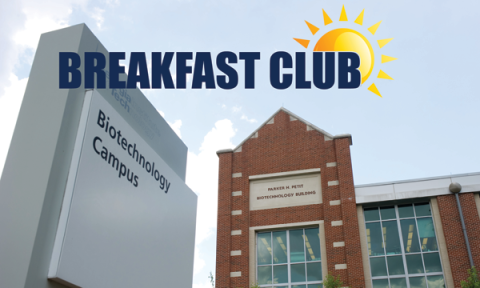event
Breakfast Club Seminar Series
Primary tabs
"Hepatopancreatic Programming/reprogramming in a Zebrafish Model System"
Chong Shin, PhD
Assistant Professor
School of Biology
Worldwide, liver failure and diabetes mellitus are the leading cause of morbidity and mortality. The therapeutic restoration of hepatocyte and β-cell mass would support the functions of a failed liver and pancreas. One approach to restoration is the transplantation of exogenous hepatocytes and β-cells generated from pluripotent stem cells. Despite notable progress, the resulting cells often fail to achieve complete function. Therefore, deciphering the activated signaling pathways and their cross-regulatory interactions during embryogenesis is crucial. A second approach to restoration is the stimulation of endogenous repair mechanisms. Although mammals have a limited capacity for regeneration, they may retain developmental and/or ancestral pathways that are typically quiescent in adults. By studying the recovery in other vertebrates not only with homologous liver and pancreas structure but also with significant capacity for regeneration, we can unveil key repair markers and/or pathways. We use the zebrafish system, an experimental model that offers the functional live imaging ability, high-throughput capacity, and single-cell level manipulability, within a vertebrate system that faithfully recapitulates the genetic control of mammalian hepatogenesis and pancreatogenesis.
Status
- Workflow status: Published
- Created by: Colly Mitchell
- Created: 12/10/2012
- Modified By: Fletcher Moore
- Modified: 10/07/2016
Categories
User Data


